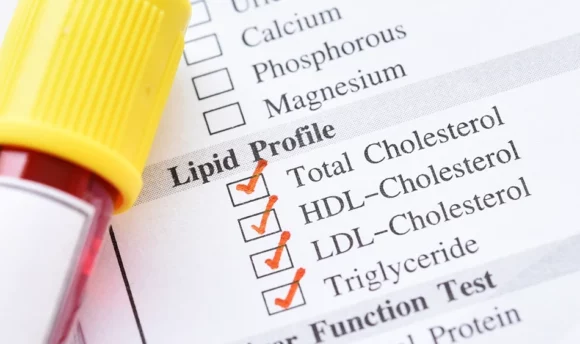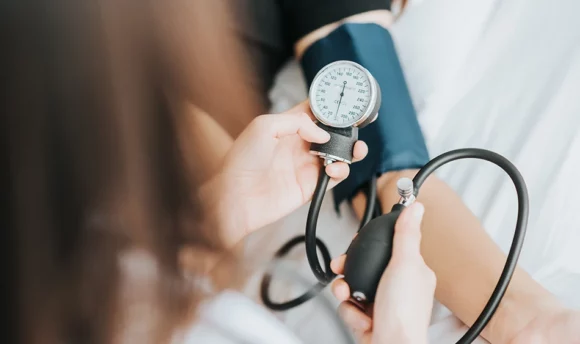How to Lower Heart Rate: Medical Training Guide
An increased heart rate may be a cause for medical concern. However, numerous medical strategies and lifestyle changes help lower your heart rate.

People with heart or lung problems may have an elevated resting heart rate that needs correction with medicine. However, even without heart health problems, lowering heart rate decreases the overall burden on the heart.
Factors such as emotional stress and environmental changes might lead to an elevated resting heart rate. The stress on the heart can lead to adverse effects on overall health such as fatigue, dizziness, blood clots, and even heart failure.
Though several uncontrollable factors such as age and genetics affect a person’s resting heart rate, there are specific actions you can take to lower your heart rate naturally.
Our medical team gives 11 actionable tips on how to lower heart rate.
What Is a Normal Heart Rate?
The general recommendation of a standard pulse is 60 to 100 beats per minute for healthy adults. A lower heart rate depicts better heart health and cardiovascular fitness. Well-trained athletes may have resting heart rates as low as 40 beats per minute.
Monitoring your pulse helps you know whether you are exercising at the proper levels to get the best out of your health.
Many factors such as age, physical fitness levels, smoking, genetics, emotions, and certain medications, especially if taken in high doses, affect overall heart health. Though numerous factors contribute to a higher resting heart rate, a pulse outside the allowable limits indicates an underlying problem.
If you are not a trained athlete but have a resting heart rate lower than 40, you might be suffering from a heart condition known as bradycardia. Bradycardia is indicated by chest pain, dizziness, heart pain (myocardial ischemia), fainting, or shortness of breath.
A pulse of above 100 may be indicative of health conditions like sinus tachycardia, which affects the sinus node, the heart’s natural pacemaker, leading to irregular heartbeats.
How to check your heart rate
You can check your pulse by placing your fingers on your wrists or at the side of your neck. To check on your wrist, place one hand’s index and middle finger on the opposite wrist below the base of the thumb and press lightly.
For the neck, place your index and third finger at the side of your neck near your windpipe. After feeling the pulse, count the beats in 15 seconds and multiply it by four to calculate your heart rate per minute.
Wellness professionals advise repeating the process a few times and computing the average to get the most accurate reading. Do not measure the heart rate within an hour of strenuous exercise, consuming caffeine, or after a stressful event.
What Causes Your Heart Rate to Rise?
Factors such as excessive alcohol consumption, stress, and caffeine can cause your heart to beat faster than expected. An overactive thyroid also releases too much thyroid hormone in your system, making your heart beat faster than it should.
When you have anemia, your body doesn’t have enough red blood cells to transport oxygen-rich blood around the body. Your heart may beat faster to compensate for this. Some medications that treat colds, anxiety, asthma, and depression may also cause the heart rate to rise.
When elevated heart rate results from lifestyle factors, it is best to make changes that will help lower your heart rate.
How to Lower Heart Rate: 11 Proven Tips by Our MD
The resting heart rate varies from person to person and may spike for several reasons, as aforementioned. Below are some of the best ways to naturally lower your heart rate.
#1 Avoid the heat
Your heart beats faster in warmer temperatures because it works hard to pump blood to the skin’s surface to produce sweat and cool off the body. Staying in cool and comfortable environments helps the heart maintain a regular beating rate.
#2 Be physically active
The most common cause of a high resting heart rate is leading a sedentary lifestyle. The best way to lower your heart rate is through regular exercise. Peer-reviewed studies suggest that regular exercise could help lower your resting heart rate.
Exercising regularly strengthens your heart as it pumps more blood with each beat during physical activity, contributing to a lower resting heart rate as the heart will not have to pump as hard.
The American Heart Association recommends having at least 150 minutes of moderate-intensity physical activity to maintain a healthy pulse. Exercise also helps minimize the risk of diabetes, hypertension, and weight gain that may affect your pulse.
#3 Drink water
Staying hydrated helps the heart pump blood more efficiently and helps the muscles work more efficiently. When you are dehydrated, the amount of blood in circulation in the body decreases, and the heart tries to compensate by beating faster.
Climate, body composition, and metabolism affect the amount of water you should drink. All fluids count toward your daily intake, but limiting beverages with added sugars and alcohol is best.
#4 Practice deep breathing
Slow, deep breathing helps activate the parasympathetic nervous system. Relaxing the nervous system helps decrease the heart rate, dilate blood vessels, and reduce overall pressure.
The brain also associates it with relaxation, which causes the body to slow down body functions like digestion. It also helps you react more calmly when faced with stressful situations.
A randomized controlled trial showed that slow breathing has physiological effects such as improving respiratory muscle activity and lowering the pulse rate.
#5 Try meditation or yoga
Meditation and yoga have many psychological benefits that lead to changes in brain activity, lowering the heart rate, breathing rate, and blood pressure. It also regulates adrenaline and cortisol levels.
When you feel frantic or overwhelmed, the body seems to think some functions are expendable and diverts energy elsewhere. However, with meditation and yoga, the body operates calmly rather than in a reflexive, stress-induced mode.
You can also try pilates, which is beneficial for your mental balance and can help you lose weight.
#6 Maintain a healthy weight
Shedding a few pounds and getting leaner helps lower your heart rate. If you carry a lot of weight, especially if it is not muscle mass, your body has to work harder to move blood in the body. Extra weight also makes exercising more challenging, and one fatigues more easily.
An overweight person requires a heart that can pump more blood, which increases the heart’s chamber size, a condition known as left ventricular hypertrophy. This condition makes one develop an irregular heartbeat, which increases the risk of a stroke.
It is, therefore, best to shed excess weight by exercising regularly and following a healthy diet. Diet affects the pulse, and a healthy low-fat, low-sugar diet rich in fruits, vegetables, whole grains, and fish such as bluefin tuna is good for losing weight and lowering the pulse.
Studies show that fish consumption is important in lowering heart rate.
#7 Avoid nicotine and alcohol
Stimulants such as nicotine and alcohol lead to dehydration and contribute to a higher heart rate. Nicotine narrows blood vessels, hardens arterial walls, and increases blood pressure.
Nicotine also causes the narrowing of your arteries, thus directly affecting how your heart functions. Excessive alcohol consumption is also linked to poor health outcomes such as heart conditions. It can cause high blood pressure, stroke, or even a heart attack.
Alcohol consumption contributes to cardiomyopathy, a condition that affects the heart muscle. Excessive alcohol consumption also raises the liquid calorie intake, leading to weight gain and increased heart rate.
Alcohol is also a toxin, and the body works hard to remove it, resulting in increased heart rate.
#8 Manage stress
Increased stress levels make your body release more adrenaline, which causes your breathing rate and heart rate to speed up. It also increases your blood pressure levels.
Web-based mindfulness intervention studies show that high blood pressure causes strain on your arterial walls and creates blood clots within the blood vessels that constrict blood flow, leading to heart failure.
Managing stress is good for mental health and overall well-being, as adverse psychological and mental health is associated with an increased risk of heart disease and stress-induced stroke.
#9 Cut back on caffeine
Consumption of caffeine stimulates the receptors in the cells within your heart, increasing your heart rate. Caffeine sensitivity is unique to each individual, and it depends upon factors such as consumption frequency, a person’s physical size, and physiology.
You can continue enjoying allowable amounts of caffeine if you do not feel dizzy, lightheaded, or have other symptoms of an increased pulse. However, excessive consumption can predispose someone to possible complications like cardiac arrhythmia, whereby the electrical signals that coordinate the heart’s beating do not work correctly.
#10 Sleep well
Sleep helps the body recharge and restore almost all aspects of physical health. Getting enough sleep prevents damage to the cardiovascular system. The heart rate slows down when sleeping, breathing stabilizes, and the blood pressure drops.
These changes in the heart when one is asleep allow the heart to recover from the strain it experiences during waking hours. Chronic sleep deprivation is linked to high cholesterol, hypertension, heart disease, stroke, and diabetes.
#11 Consult with your doctor
Sometimes, medical conditions may cause an increased heart rate. Usually, increased stress levels or strenuous exercises such as morning runs may increase the heart rate, but it may also be due to medical conditions such as anemia, hyperthyroidism, or sinus tachycardia.
Therefore, it is advisable to consult your doctor to find the best solution to rectify an elevated heart rate.
What Does a Heart Rate Mean?
Heart rate refers to the number of times the heart beats within a given timeframe, usually a minute. You can feel your heart rate on your wrists, side of your neck, top of the foot, at the back of your knees, or in other places where an artery is near the skin’s surface.
The recommended normal resting heart rate is 60 to 100 beats per minute for adults. According to the American Heart Association, the maximum heart rate is computed as 220 minus your age. This number acts as the target heart rate during strenuous exercise.
Why is my resting heart rate so high?
Numerous health conditions such as anemia, panic attacks, stress, hypertension, or drug and substance abuse increase the resting heart rate. An increased heart rate is characterized by fainting, fatigue, shortness of breath, and exercise intolerance.
To avoid heart-related problems, you can use one of the best blood pressure apps. Such apps offer users personalized insights and help minimize the risk of stroke.
Healthy lifestyle changes help manage heart-related conditions.
FAQs
Below are the answers to the frequently asked questions about one’s heart rate.
You have an alarming heart rate if your pulse is consistently above 100 beats a minute or regularly below 60 beats per minute. If your pulse is beyond the above limits and you experience dizziness, fainting, or lightheadedness, it would be best to see a doctor for medical advice.
Drinking water lowers the pulse by activating the sympathetic nervous system, thus contributing to a lower resting heart rate.
Taking enough water also increases blood plasma levels hence protecting the body from dehydration, which consequently allows the heart to pump blood more efficiently.
A resting heart rate of 120 is considered high and is a warning sign of a medical condition known as tachycardia. The resting heart rate varies among individuals, but if your heart beats at this rate, accompanied by some symptoms like fainting and dizziness, it is advisable to seek medical assistance immediately.
A Word From Our MD
The resting heart rate is indicative of a person’s overall health. A fast heart rate is usually a natural response to the environment or stressors. Seek medical treatment if you have a high pulse without an apparent cause, such as strenuous exercise or high-stress levels.
A consistently high or low heart rate may indicate underlying medical conditions. The doctor should assess your electrolyte levels, thyroid, and blood count and perform other tests to determine whether the high pulse is a cause of concern.
Your doctor may prescribe beta-blockers to treat hypertension, coronary heart disease, and congestive heart failure. Most people can lower their resting heart rate by adopting new lifestyle habits, such as following a healthy diet plan and workout routine.
Conclusion
Following a healthy diet and fitness routine helps lower your pulse. You cannot lower your heart rate immediately as it takes some time for lifestyle changes to affect the heart, as the heart, like any other muscle, takes time to get stronger.

















































 Select your language:
Select your language: 








